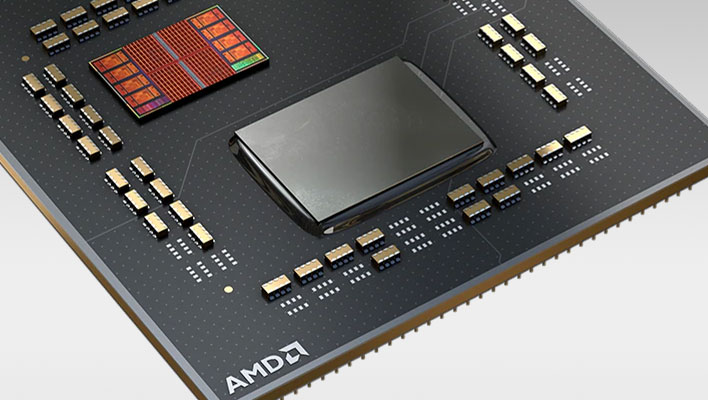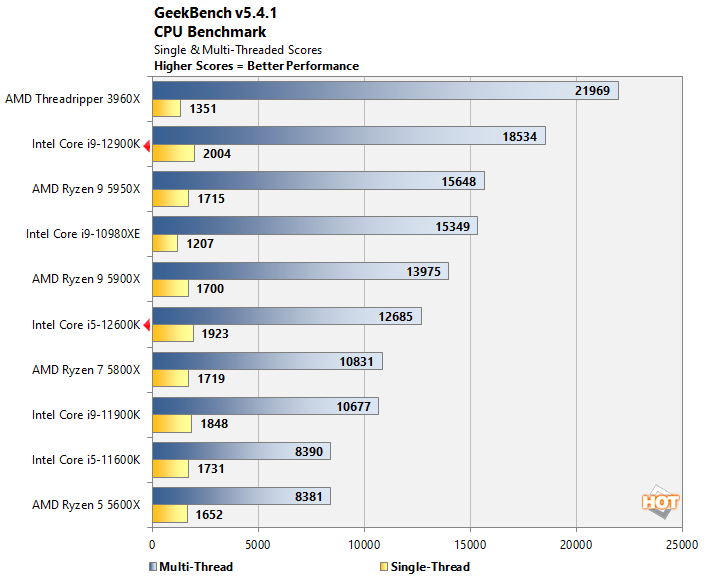Ryzen 7 5800X3D Battles 5800X In Early Benchmark Battle With Mixed Results

It will be about a month before AMD's Ryzen 7 5800X3D with its fat stack of 3D V-cache sashays onto retail shelves, but the benchmarks are already starting to trickle in. As such, we have a chance to make some early and unofficial comparisons with the Ryzen 7 5800X, essentially the same chip but without the added cache.
This is also where things get tricky because the stacked cache on the Ryzen 7 5800X3D is not going to bring a performance uplift in every scenario. Gaming is where AMD claims we'll see a 15 percent boost, which is roughly on par with what generational upgrades bring at the architecture level. So it's a fairly exciting release in that regard.
Those comparisons will have to wait. What we have here is a set of Geekbench entries for AMD's latest addition to the Zen 3 lineup. Here's a look at the better of the bunch...
The Ryzen 7 5800X3D scored 1,633 in the single-core test and 11,250 in the multi-threaded test. It achieved this in a system equipped with an ASRock X570 Taichi motherboard with 32GB of DDR4-3200 memory and Windows 11.
If we pluck our Geekbench graph from our Alder Lake performance review, we can compared the leaked scores with a collection of our own...

In our own tests, the Ryzen 7 5800X scored 1,719 in the single-core run and 10,831 in the multi-core run. So the vanilla Ryzen 7 5800X with 32MB of L3 cache wins the single-core battle by 5.3 percent, while the Ryzen 7 5800X3D with 96MB of L3 cache notches a multi-core victory to the tune of 3.8 percent.
A myriad of caveats apply, such as different platforms, different versions of Windows 11, different testers, different drivers, different cooling, and so forth. That's the nature of the beast when evaluating leaked benchmark results.
The reason we decided to cover this one was for more of a PSA about expectations. At the core level, the Ryzen 7 5800X3D and Ryzen 7 5800X are fundamentally the same. Both are based on Zen 3 and both feature eight cores and 16 threads. The differences come down to clock speeds and cache.
- Ryzen 7 5800X3D: 8C/16T, 3.4GHz base, 4.5GHz boost, 96MB L3 cache
- Ryzen 7 5800X: 8C/16T, 3.8GHz base, 4.7GHz boost, 32MB L3 cache
Note that the Ryzen 7 5800X is actually clocked a bit higher (400MHz on the base clock and 200MHz on the max boost clock). Hence the likely reason why the single-core score tipped in its favor, though the multi-core score is interesting. But again, there are multiple other factors at play.
As AMD's Robert Hallock confirmed to us during a recent 2.5 Geeks webcast, the Ryzen 7 5800X3D does not support overclocking. Advancements in V-cache packaging will eventually offer more flexibility in that regard, but for this first-gen iteration, the clocks out of the box can't be tweaked.
Hopefully we'll get a chance to test the Ryzen 7 5800X3D ourselves and see what it's capable of. In the meantime, take the leaked benchmarks and performance comparisons with an extra grain of salt.


